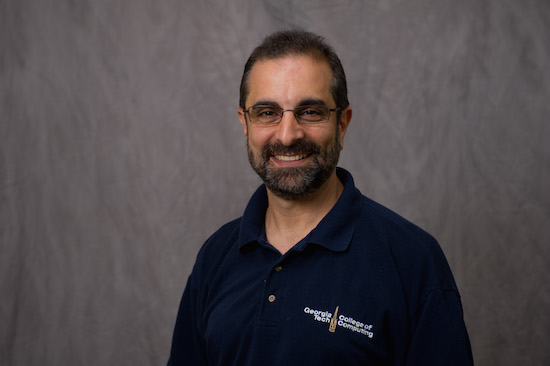Distinguished Lecture
On Being an Applied Computer Scientist
This event is free and open to the publicAdd to Google Calendar

Abstract – Without a doubt, the importance of computing today is based on the use of the technology to a wide variety of application domains. As a computing researcher interested in applications, there are a variety of challenges, seen as both opportunities and tensions, to address. The majority of these challenges stem from the balancing act between the need as researchers to advance knowledge in an academic discipline and the desire to make (or be perceived as making) a contribution in the application domain. In this talk, I will describe through a set of examples how this balancing act can play out in the career of a computer scientist. My examples will draw from my own research experience, in which I have attempted to apply the technologies of mobile and ubiquitous computing (and beyond), to opportunities ranging from education to domestic life to health. My goal is to motivate researchers at all levels to unleash the passion to seek computing solutions to meaningful problems in life without having to sacrifice the rigor and advancement of serious computer science research.
Biography – Gregory D. Abowd is a Regents’ and Distinguished Professor in the School of Interactive Computing at Georgia Tech, where he has been on the faculty since 1994. His research interests concern how the advanced information technologies of ubiquitous computing (or ubicomp) impact our everyday lives when they are seamlessly integrated into our living spaces. Dr. Abowd’s work has involved schools (Classroom 2000) and homes (The Aware Home), with a recent focus on health and particularly autism. Dr. Abowd received the degree of B.S. in Honors Mathematics in 1986 from the University of Notre Dame. He then attended the University of Oxford in the United Kingdom as a Rhodes Scholar, earning the degrees of M.Sc. (1987) and D.Phil. (1991) in Computation. From 1989-1992 he was a Research Associate/Postdoc with the Human-Computer Interaction Group in the Department of Computer Science at the University of York in England. From 1992-1994, he was a Postdoctoral Research Associate with the Software Engineering Institute and the Computer Science Department at Carnegie Mellon University. He has graduated 25 PhD students who have gone on to a variety of successful careers in academia and industry. He is an ACM Fellow, a member of the CHI Academy and recipient of the SIGCHI Social Impact Award and ACM Eugene Lawler Humanitarian Award. He is also the founding President of the Atlanta Autism Consortium, a non-profit dedicated to enhancing communication and understanding across the varied stakeholder communities connected to autism.
 MENU
MENU 
